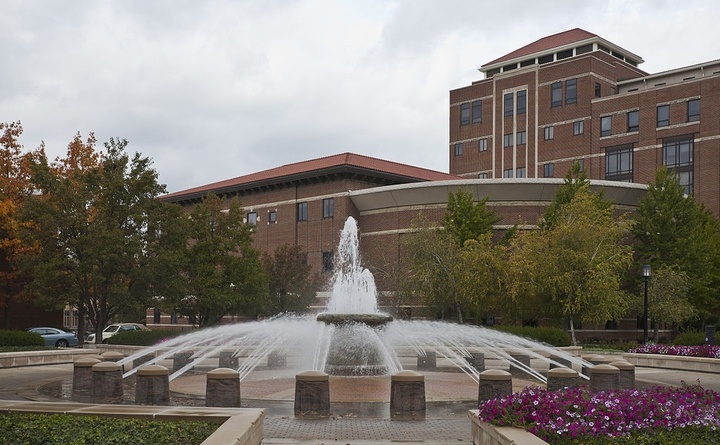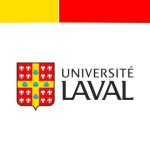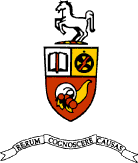Purdue University
Founded 1869. A State-assisted System with its main Campus at West Lafayette, and others at: Fort Wayne, Hammond (Calumet), Indianapolis, and Westville (North Central). Also reaches other cities through its Statewide Technology Programme.
Funding:
Public
Accreditation:
North Central Association of Colleges and Schools
Grades 5
Professional degree,
Master's Degree,
Doctor's Degree,
Bachelor's Degree,
Associate Degree
or equivalent
Languages 1
Divisions 14
- Biomolecular NMR, Structure and Design Centre
- Engineering Research for Collaborative Manufacturing Systems Centre
- Tax Policy Studies CentreFields of study: Taxation
- Thermal Sciences and Propulsion Centre
- Agriculture CollegeFields of study: Agriculture
- Education CollegeFields of study: Education
- Engineering College
- Health and Human Sciences CollegeFields of study: Occupational Health, Dietetics, Speech Therapy and Audiology, Clinical Psychology, Health Sciences, Nursing
- Liberal Arts College
- Pharmacy CollegeFields of study: Pharmacy
- Science CollegeFields of study: Natural Sciences
- Technology College
- Veterinary Medicine CollegeFields of study: Veterinary Science
- Management SchoolFields of study: Management
Requirements
- Admission details: Graduation from high school or equivalent, and College Board SAT or ACT examination. TOEFL test for foreign students
Short online courses 67
- AP Computer Science A: Java Programming
- AP Computer Science A: Java Programming Classes and Objects
- AP Computer Science A: Java Programming Loops and Data Structures
- AP Computer Science A: Java Programming Polymorphism and Advanced Data Structures
- Analysis and Design of Water Distribution Systems
- Applied Quantum Computing I: Fundamentals
- Applied Quantum Computing II: Hardware
- Applied Quantum Computing III: Algorithm and Software
- Big Data for Reliability and Security
- Biological Engineering: Cellular Design Principles
- Boltzmann Law: Physics to Computing
- Business Accounting Basics
- Communicating Strategically
- Communication for Engineering Leaders
- Connections in Steel Structures
- Data Science for Smart Cities
- Decision Making in Engineering Design
- Design of Sanitary Sewer Systems
- Design of Steel-Concrete Composite Structures
- Design of Urban Water Management Structures
- Elastic Stability and Behavior of Members
- Electrical-Based Non-Destructive Testing and Sensing
- Fiber Optic Communications
- From Atoms to Materials: Predictive Theory and Simulations
- Fundamentals of Current Flow
- Fundamentals of Nanoelectronics, Part B: Quantum Transport
- Fundamentals of Nanoelectronics: Basic Concepts
- Fundamentals of Nanomaterials and Nanotechnology
- Fundamentals of Non-Destructive Testing
- Fundamentals of Prestressed Concrete
- Fundamentals of Transistors
- Groundwater Contamination
- Groundwater Cycle
- Introduction to Bioelectricity
- Introduction to Deep Learning
- Introduction to Machine Learning
- Introduction to Quantum Science & Technology
- Introduction to Quantum Transport
- Nano-Device for Energy Harvesting and Sensing
- Nanomaterials for Civil and Environmental Applications
- Nanophotonic Modeling
- Nanotechnology: Fundamentals of Nanotransistors
- Organic Electronic Devices
- Organic Electronic Devices
- Personal Finance
- Plastics in Infrastructure and the Environment
- Post-Tensioned Structures
- Pretensioned Structures
- Primer on RF Design
- Principles of Electronic Biosensors
- Probability: Basic Concepts & Discrete Random Variables
- Probability: Distribution Models & Continuous Random Variables
- Quantum Detectors
- Quantum Detectors and Sensors
- Quantum Networking
- RF Design: Passive and Active Components
- RF System Design
- Reliability in Engineering Design
- Semiconductor Fundamentals
- Solid State Devices 1
- Stability and Design of Structural Frames
- Stability and Design of Structural Members
- Steel Beam and Plate Girder Design
- The Physics of Electronic Polymers (PEP)
- U.S. Government - Foundations, Democracy & Politics
- Wave-Based NDT Methods
- Wells Hydraulics



